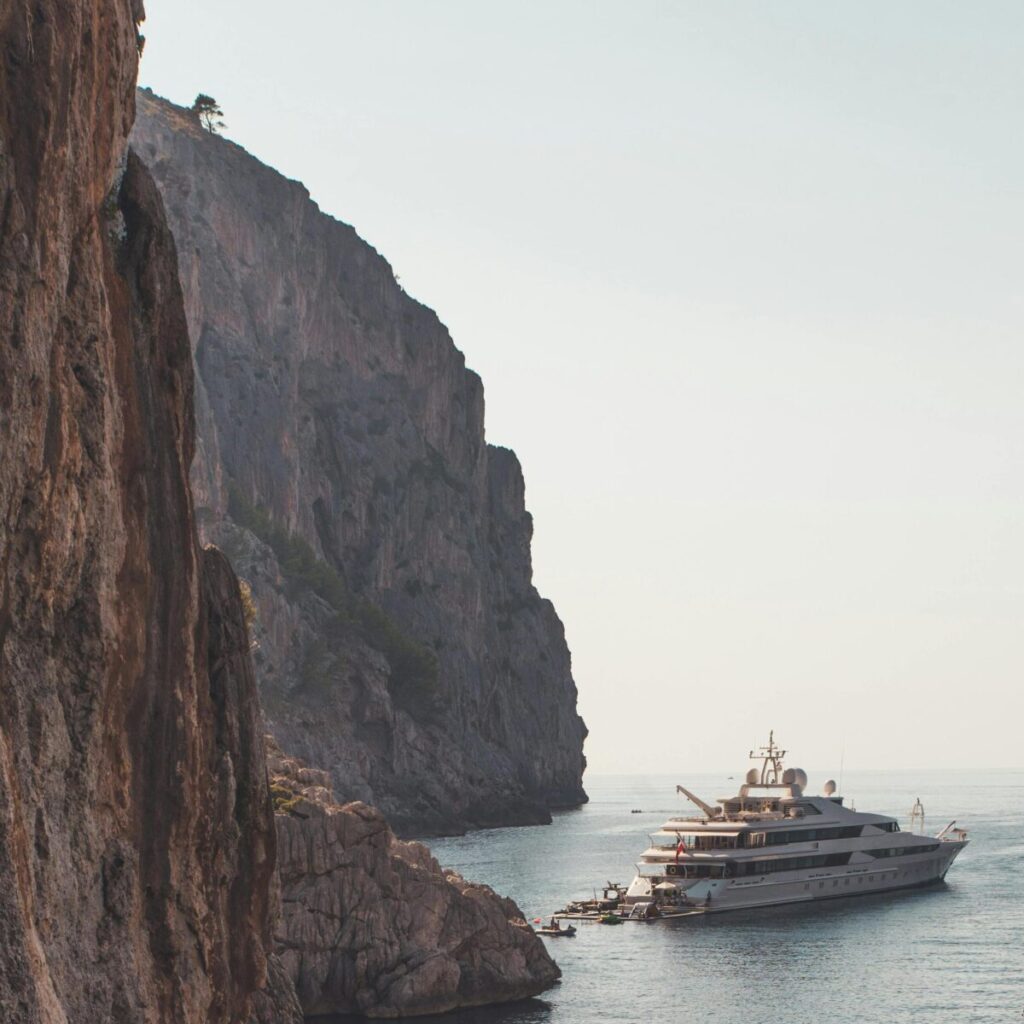As the Mediterranean concentrates climate vulnerabilities and anthropogenic pressures, two months ago in Nice (June 9 to 13, 2025), the 3rd UN Ocean Conference saw a proliferation of local, scientific, and citizen initiatives across all relevant fields. In the face of these expectations and numerous very concrete proposals, the summit ratified some diplomatic commitments deemed too timid in light of the urgency, leaving a sense of incompleteness for those who act on the ground daily.
This article is a summary of a series published in 22-med in June 2025 dedicated to UNOC3. The 4 original articles can be found in the theme A fragile world in the 11 languages used on the site.
The Mediterranean, a closed sea among the most polluted in the world, concentrates all the pressures: plastics, overfishing, coastal concreteization, invasion of exotic species, rising sea levels. On the eve of the 3rd United Nations Ocean Conference, several coastal states presented a worrying state of affairs.
A sea overheating, states lagging behind
In Tunisia, nearly 500,000 tons of plastic are dumped into the sea each year. Algeria is fighting against oil pollution and overfishing. Spain is increasing the number of "black flags" on its beaches. Lebanon still discharges 85% of its wastewater untreated. Italy faces political inertia, while Turkey struggles to forget the mucilage disaster in 2021. In light of these alarming observations, the commitments made before the summit were very mixed. While some countries have developed national strategies (Tunisia, Algeria), others, like Italy or Israel, have remained discreet. France, the host of the summit, highlighted its scientific projects (PHAROS, ADEN-Med) and the climate policies being tested in the South Region. In Nice, many Mediterranean governments reiterated their national priorities: Greece emphasizes the ratification of the BBNJ treaty, Lebanon on waste management, Italy on water cooperation. But responses often remain sectoral, without an integrated strategy for this shared sea.
Civic voices propose concrete solutions
In contrast to these state slowdowns, civic, scientific, and associative voices have emerged with new strength. Corlie Glémas, a young grassroots messenger, has traveled the Mediterranean coastline to convey the voices of fishermen, instructors, and the invisible residents of major negotiations. Supported by Pure Ocean and Watch the Sea, she embodied this civic desire for a more human governance connected to local realities. MerTerre, through its director Isabelle Poitou, advocated for the networking of data from waste collection efforts. With its Zero Wild Waste platform, it defends rigorous participatory science that is usable by decision-makers. Natalie Quévert, from Sea Index, presented the first independent environmental assessment tool for luxury yachts, to encourage shipowners and ports to prioritize the least polluting vessels. “We do not point fingers. We offer a neutral framework for informed choices,” she summarizes. On the eve of the summit, at the old port of Marseille, scientists, industry leaders, and federations of boaters presented the results of 5 years of research to decarbonize recreational boating. Hybrid electric kits allow for limiting emissions from polluting engines of leisure boats under 12 meters, which make up 90% of the fleet of 428,000 units navigating the French Mediterranean coastline. These prototypes, co-financed by the South Region, enable a realistic transition at a contained cost and could be generalized as soon as tomorrow. Dominique Robin (AtmoSud), Michel Lamberti (Nautical Federation), and Cyprien Fontvieille (Neede) call for specific regulations for the 300-meter coastal strip, a crucial area for biodiversity.
Promises… and frustrations
The Nice summit, while bringing together more than 120 countries and allowing for diplomatic advances (treaty against plastic signed by 95 states, digital corridors, network of green ports), still leaves a feeling of insufficiency. “Fortunately, there are local actions, because this type of summit leads to nothing concrete,” states Renaud Muselier, president of the South Region, who claims a pioneering role in the electrification of ports, the protection of posidonia, and support for sustainable boating. His vice president in charge of the coastal sea commission, Christophe Madrolle, praises the increasing role of scientists in the debates but warns: “We must now turn urgency into decisions.”
For there is a gap. On the ground, citizens are acting, NGOs are innovating, and local authorities are experimenting. But at the summit, commitments remain weakly binding. Like Adrien Piquera (Nature Peinture) who laments: “We signed a declaration on plastic, but without the United States, China, or the petro-monarchies. We need a real ocean law.” A sentiment echoed by Anne Claudius-Petit, president of the Camargue Park, who warns about the vulnerability of deltas in the face of rising waters. She concludes: “This summit has allowed for technical alliances to be formed. Now we need to make them concrete.”
The Mediterranean, this open-air laboratory, will remain a strategic issue. A shared sea with intertwined destinies. UNOC3 reminded us of this. But to change the game, the voices of the territories must stop being whispers in the diplomatic noise.

Cover photo: A large-scale experiment in Marseille © DR
